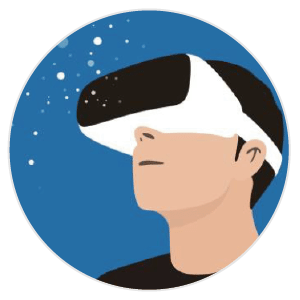RECOMMENDED READING
EXPERIENCE ON DEMAND
Jeremy Bailenson, PhD

As Bailenson aptly cautions in the last chapter of Experience on Demand, the dawn of widely-used virtual reality theoretically provides endless possibilities; the only limit is imagination. However, “just because we have the freedom to build anything we want, doesn’t mean that we should” (p. 259). One of the main themes of the book takes this a step further, postulating what we could, and should, create to make meaningful, and ethical, content.
Each chapter is filled with examples of research and applications that have already been conducted to showcase what such impactful pieces would look like. From improving an NFL quarterback’s performance, to pain reduction via distraction, to bringing ocean acidification’s effects directly to the user, the stories told regarding each highlight the fact that we have not even begun to examine all of the opportunities for change that virtual reality provides. It’s an enterprise unlike any other in the world of media, one that feels real to the user, making it perhaps the one of the strongest candidates to provide change, experience, and connection. The pain reduction studies can lead to a replacement for opioid prescriptions, while a dystopian view of the ocean’s future can prompt the viewer to drive less and reduce their carbon footprint, and so on.
But even with this potential, there still remains the possibility of negative consequences. Avatars appearances’ in social settings can be manipulated, offering a chance to deceive others. The immense sense of “realness,” or presence, means that violent scenarios can prompt users to feel as if they are actually committing the atrocities presented, inciting aggressive behavior and giving an opportunity to practice harmful tactics. And of course, there is a high chance of addiction to a medium that can present you with your ideal version of escape from the real world. It is why, with this book, Bailenson highlights, through storytelling and compelling examples of good virtual reality, that the time is now to examine how to use it responsibly, before it is too late. And it is also why anyone interested in this exploding field should give Experience on Demand a read.
 This book was recommended by Jessica Roth, Social Science Research Professional and Web Production Associate at the the Stanford Center on Longevity.
This book was recommended by Jessica Roth, Social Science Research Professional and Web Production Associate at the the Stanford Center on Longevity.

